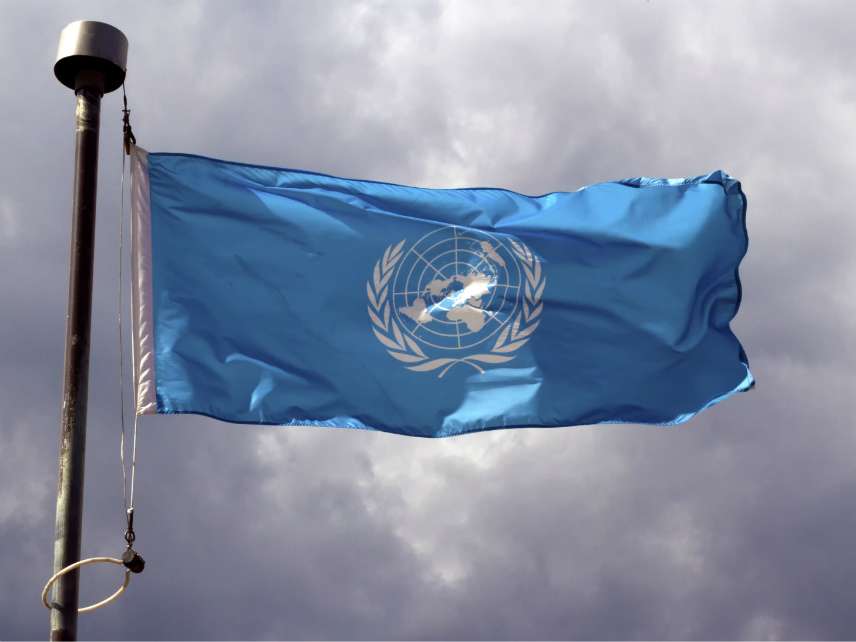The United Nations Cites Bad Straw Stats While Lauding Latin American Bans
Pushing punitive bans is a strange activity for an organization dedicated to defending human rights.

As I reported back in January, the oft-cited factoid that Americans use 500 million plastic straws a day came from an enterprising 9-year-old's unconfirmed survey of three manufacturers. Despite this revelation, government agencies have continued to cite the number in support of restrictive straw policies.
That includes the National Park Service, which played a crucial role in popularizing the number and still features it on its website, and the San Francisco Board of Supervisors, which included the number in its July ordinance making it illegal for restaurants and retailers to give customers plastic straws. Now the U.N. is getting in on the action.
"Straws represent only 0.025% of the total volume of marine litter," says a story hyping anti-straw efforts in Latin America that the U.N. Environment Program posted on Wednesday. "But the amount of straws we consume in our daily lives is so huge that this number increases exponentially every day. In the United States alone, 500 million straws are used daily in restaurants, hotels and homes."
The first figure is correct. The second is not. Neither is the suggestion that straw use is growing exponentially. (I would really like to meet the person who uses one straw today, two the next day, and is up to 64 straws a day by the end of the week.)
It might be tempting to forgive the U.N. for its error were it not employing the bogus number to justify some shockingly strict straw bans south of the Rio Grande.
Rio De Janeiro, for instance, passed a straw ban in July that threatens violators with fines as high as $1,600, or about 10 percent of the average Brazilian's yearly income. The local government, the U.N. story approvingly notes, has even set up a hotline for concerned citizens (or jealous competitors) to report scofflaw straw servers. The government of Ecuador also gets a mention for its prohibition on the sale or use of single-use plastic straws on the Galapagos islands, as do the Mexican states of Baja California Sur and Veracruz for their straw bans.
Given the human rights abuses that have come hand in hand with plastics bans in places like Kenya, Rwanda, and now Somalia (where the terrorist group Al Shabab has banned plastic bags), one might hope the U.N. would be a little more concerned about how these less-than-liberal governments enforce their straw prohibitions. Instead, it is publishing glowing stories about their accumulation of more powers.
